Is your partner who has Asperger’s intentionally treating you in a way as to cause confusion and cognitive dissonance? Are you sure it’s gaslighting? What if gaslighting is not the motivation of someone with Asperger’s?
Author’s note: It is always a challenge to choose genders when writing about neurodiverse couples. Here I use the example of an autistic man and a neurotypical woman. I don’t mean to imply there are no cases in which this is reversed. It’s just that at this time, men are diagnosed at a 4:1 ratio to women, and in my practice, it is the majority of men who are the autistic partners. This could reflect the higher frequency of autism among men, or it could mean more couples like this present for counseling than couples in which the autistic partner is female. It is also important to note that individuals on the spectrum can be susceptible to gaslighting from others, and I will address this in a separate article.
In my work with neurodiverse couples in which one partner has autism or Asperger’s, one of the words I hear most often is “gaslighting.” Here’s an example:
“It would be one thing if we just fought like other couples who eventually make up. But that’s not how it is with us. Instead, we argue about something, and he tells me I’m being irrational. Or childish. Or critical. Then he shuts down. Often, he storms out of the room. If I try to bring it up later, he tells me I’m imagining things, that he didn’t say that, or if he did say it, he didn’t mean it the way I took it. He says I’m being too sensitive. And he shuts down again. I’m left feeling as if I’ll explode with frustration. I’m furious. And I have nowhere to go with it. I start to wonder if he’s right about me. I don’t know what to believe anymore. Is this gaslighting?”
Read on to know if it is still gaslighting If your partner has Asperger’s.
GASLIGHTING DEFINED
In brief, gaslighting is a term that derives from the 1944 movie called Gaslight in which a husband successfully manipulates his wife into doubting her own reality.
The husband in the story has a dark secret which is at the root of everything he says and does to his wife. To him, she is not a person with her own interior life. She is a pawn in his selfish game, which until the end he plays shrewdly enough to cause her to doubt her own version of reality.
Read 10 Things I Wish I’d Known About Gaslighting before it happened to me
In reference to the flickering gaslights in the story, this effect has become known as gaslighting: intentionally treating a person in such a way as to cause confusion and cognitive dissonance, which eventually lead to collapse into self-doubt.
Of note is that at the heart of the husband’s motivation is a desire for riches, symbolized by jewels. This part of the story is often overlooked, but it is worth consideration when we are talking about autistic behavior.
“Instead, we argue about something, and he tells me I’m being irrational. Or childish. Or critical. Then he shuts down. Often, he storms out of the room. If I try to bring it up later, he tells me I’m imagining things, that he didn’t say that, or if he did say it, he didn’t mean it the way I took it.”
Read Gaslighting in Relationships: 7 Questions To Tell If You’re Being Manipulated
QUESTIONING REALITY IN NEURODIVERSE RELATIONSHIPS
First, let’s return to the comments of the neurotypical partner I quoted above. One way to view her statement is in terms of gaslighting, just as it is laid out in the movie.
In this model, time after time, incident after incident, she is cajoled into questioning what her own eyes, ears, and heart are telling her. Finally, she gives up. She begins to believe the mirror her partner holds up to her reflects an accurate representation of who she is.
In order to believe that, she has been forced to discount any impulse of her own that contradicts such an image. She collapses into self-doubt. His manipulation has succeeded. Does this make him right? His smugness suggests that he believes so. He feels clever. He has won.
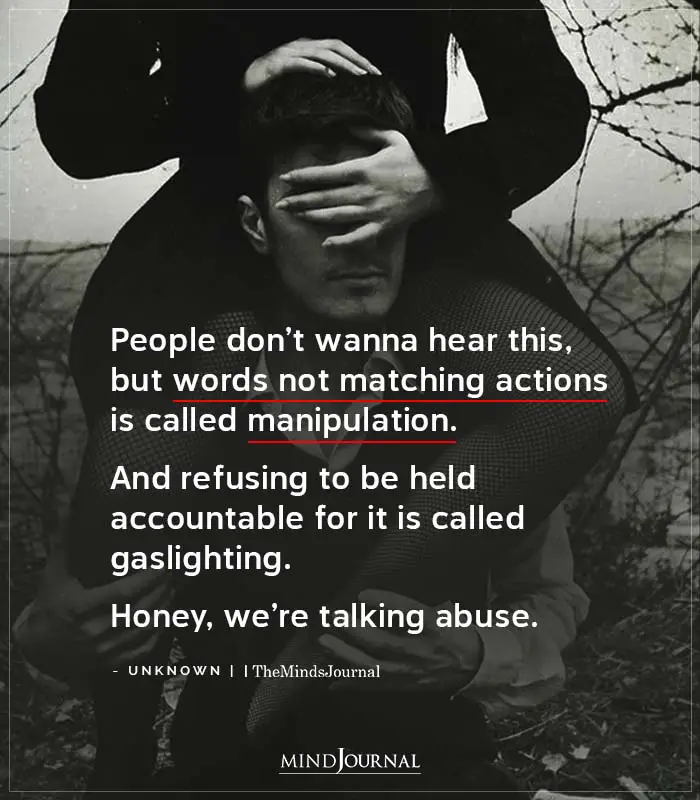
What would motivate someone to treat another person this way?
Such manipulation may be observable in certain personality disorders, such as narcissistic personality disorder (NPD), antisocial personality disorder, and borderline personality disorder (BPD). In short, it is not healthy to intentionally set out to dominate someone else by negating that person’s reality.
Such individuals leave a trail of emotional wreckage in the lives of others. Shelves full of books and countless hours of therapy are devoted to helping those victimized by such manipulators.
Read 121 Things Narcissists Say When They’re Gaslighting You
LOOKING BEYOND THE BEHAVIOR: SELF-PROTECTION
Behind the behavior of the personality disordered, there is an unconscious drive to protect that which feels threatened, which is usually the person’s self-worth. In twisted logic, anything that might compromise such fragile emotional integrity must be extinguished at all costs before it can extinguish the very life of the manipulator. This may be felt as desperation.
As a result, manipulation can be rationalized. It may not be viewed as a choice but rather as a necessity for survival. Incidentally, there is no respect for someone who can be manipulated, which makes further mistreatment easier and may even be viewed as what the person deserves.
But Gaslighting is not the motivation of someone with autism or Asperger’s.
THE TRAGIC DANCE OF THE NEURODIVERSE COUPLE
The jewels an autistic person guards could best be described as personal integration and a sense of security in who he is. Threats may come from feeling overwhelmed emotionally in the face of what seems like unmanageable ambiguity and uncertainty, which often lead to untenably high anxiety.
Reducing that anxiety, consciously or not, is the most likely driver for behavior that appears to be gaslighting in someone with Asperger’s.
Often, this person is oblivious to the harmful effects of his behavior and doubts the validity of someone’s observation that it might be gaslighting. The fact is that I have never met an autistic person whose conscious intent is to manipulate his partner.
But the key phrase is “conscious intent.” Because even though a person with Asperger’s may not mean to manipulate (gaslight) his partner, her actual experience is the same as it would be if intent were there.
In short, we have a couple in which one partner feels as if he is fighting for survival and another partner who feels as if she is fighting for survival, and in a two-way charge, one person’s means of doing so obliterates the reality of the other. It is what I call the tragic dance of the neurodiverse couple.
Read ADHD Is A Fictitious Disease: A Shocking Deathbed Confession
ADDRESSING THE TRAGIC DANCE IN COUPLES COUNSELING
The autistic person can learn in counselling that his behaviour has the effect of invalidating his partner’s emotional life. He can come to understand that even though he does not intend to inflict such pain, the effect is real.
Her dismayed and perhaps argumentative behaviour is how a neurotypical person might justifiably respond to what feels like manipulative behaviour from someone else. She is not trying to criticize him. She is trying to express her pain.
More often than not, this realization is met with deep remorse and often guilt. In time, he can learn to understand his own way of being in the world without judging himself harshly as being wrong or defective, because that is not the correct metric. Emotional support for him is key to his growth in this area.
The neurotypical partner can learn, first and foremost, that her response to feeling manipulated is normal.
Her pain and confusion are normal. They are valid. She must be allowed to acknowledge and heal her wounds, because it doesn’t matter whether she was stabbed intentionally or inadvertently: she is still bleeding.
The second step, though, is to begin to understand that her autistic partner is not trying to hurt her
Instead, what she experiences as manipulation is his way of trying to reduce omnipresent anxiety, which usually derives from a lifelong experience of not quite getting things right when it comes to understanding someone else’s emotions.
She needs emotional support in order to move forward. At the same time, she also has to come to terms with the fact that her partner’s way of offering this support may not align with her idea of what that support must look like.
Read 7 Ways Past Emotional Manipulation Changes The Way Women Love
The way to view communication in a neurodiverse couple, or any couple, is in terms of its effectiveness. This is the only metric that matters. It’s not a matter of who is right or who is wrong.
The goal of communication is mutual understanding. In order to improve communication skills and strategies, recognizing differences with an effort to respect them without judgment becomes the foundation for growth in the relationship.
When I work with couples, we concentrate on slowing down conversational speed, considering linguistics and the formal logic of argument, and identifying the emotional subtext and context inherent in communication. It takes time. It takes practice. It is not always successful. When it is, it can be described as a process of two steps forward and one step back as two parallel lives learn to build bridges between two lines that will never completely merge.
Read Can Autistic People Make Great Social Partners?
Learning to trust deeply after years of being hurt, having the faith that being vulnerable one more time might be worth the risk, accepting that one’s interpretation of another’s behaviour may not be the same as that person’s intent: these are the challenges.
It can’t be gaslighting without the intent to manipulate. Regardless, it can feel like gaslighting. Education about neurodiversity, skilled counseling, and communication in renewed mutual respect create the tools for interrupting this revolving door.
Reference:
Gaslight (1944). (n.d.). Retrieved from https://www.imdb.com/title/tt0036855
Written by: Sarah Swenson, MA, LMHC For her courses online, please visit TheNeurodiverseCouple.thinkific.com. Her coaching and psychotherapy practices are full and she developed these online courses in order to meet demand for her services. Originally appeared on: Good Therapy Republished with permission
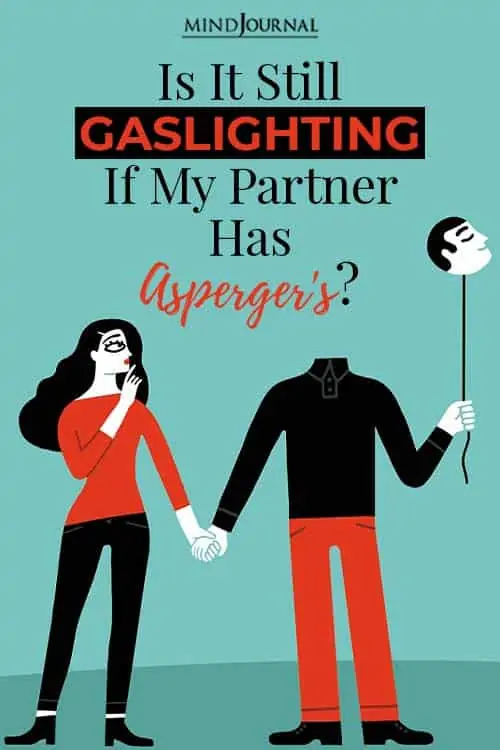
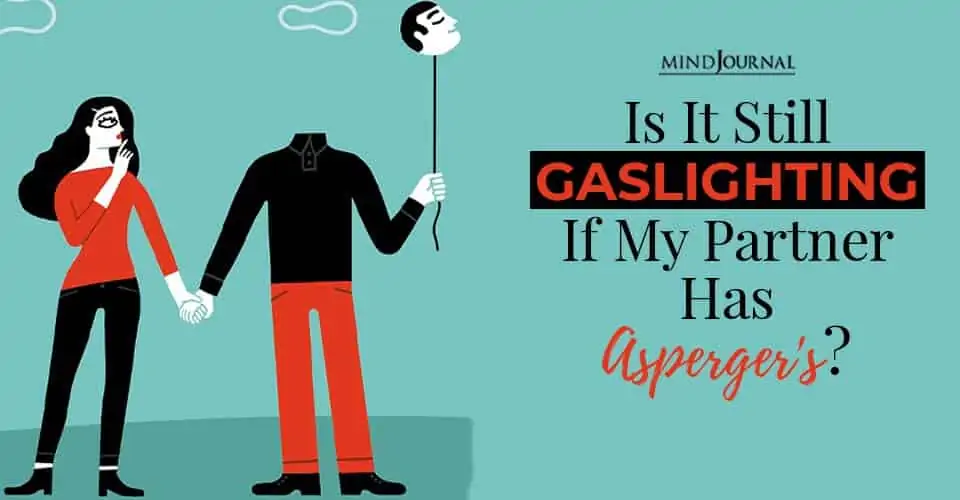




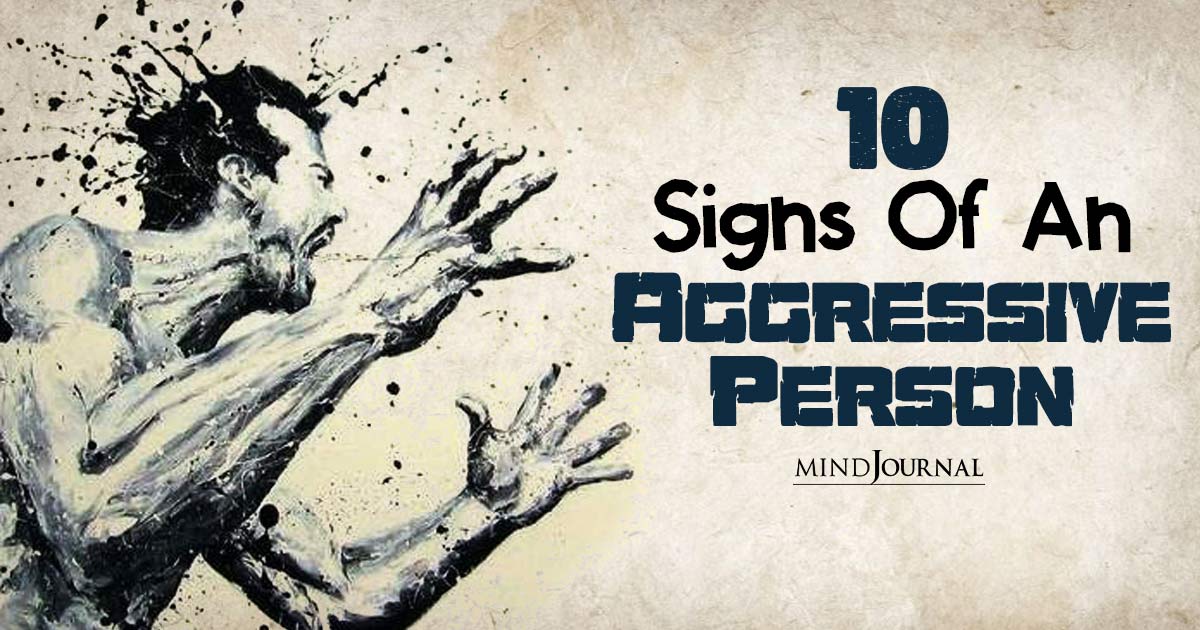
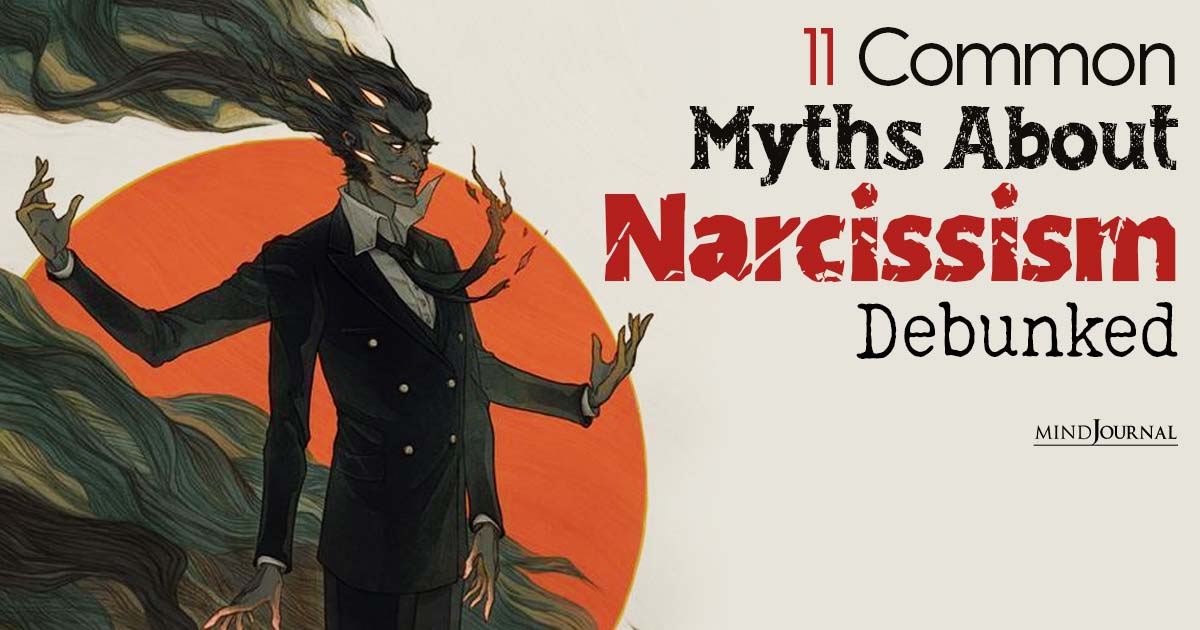

Leave a Reply
You must be logged in to post a comment.